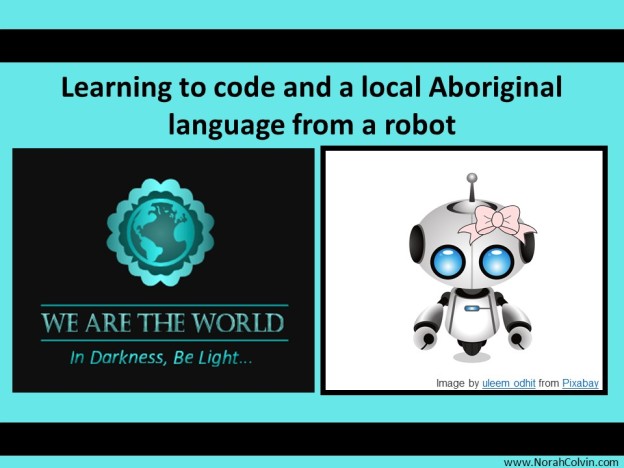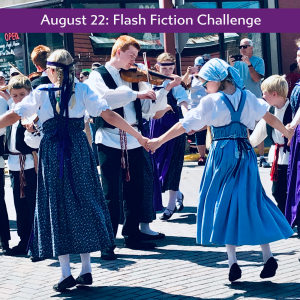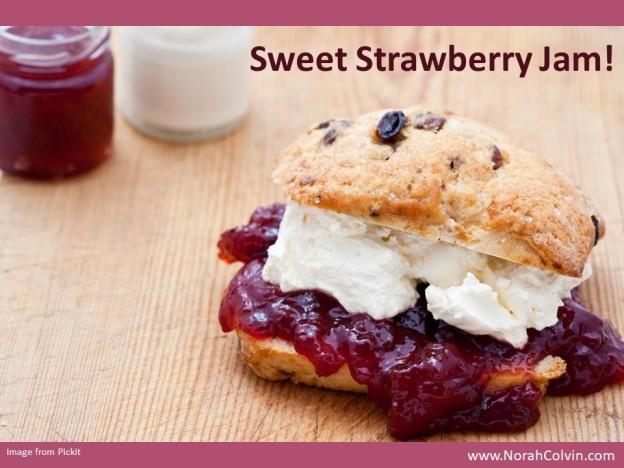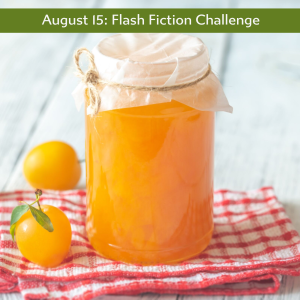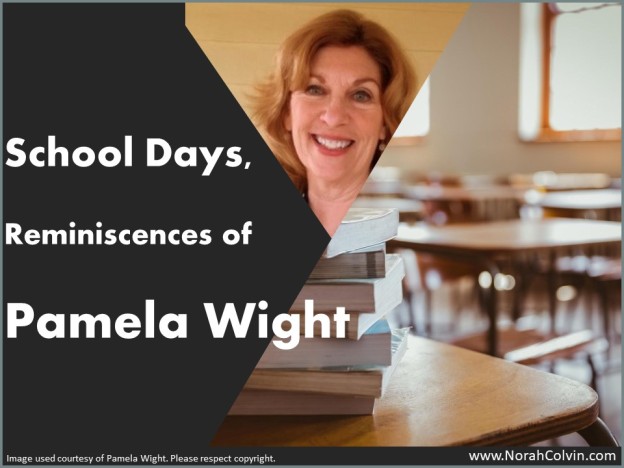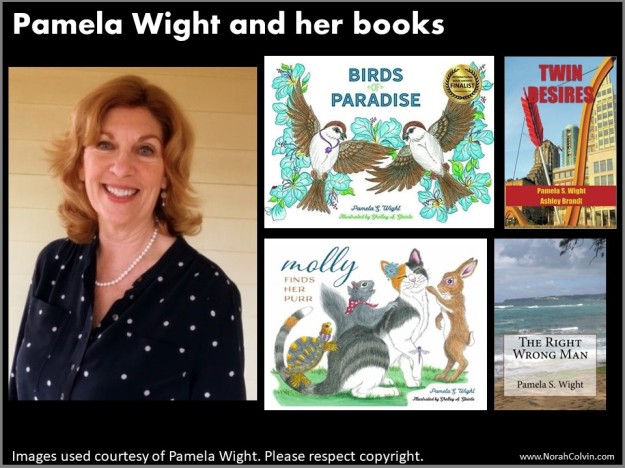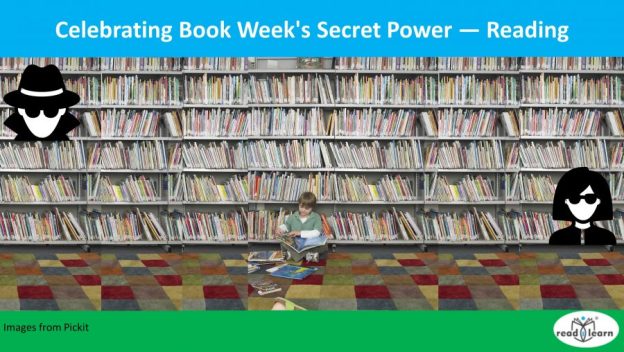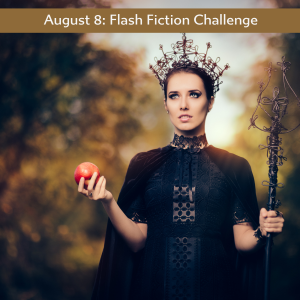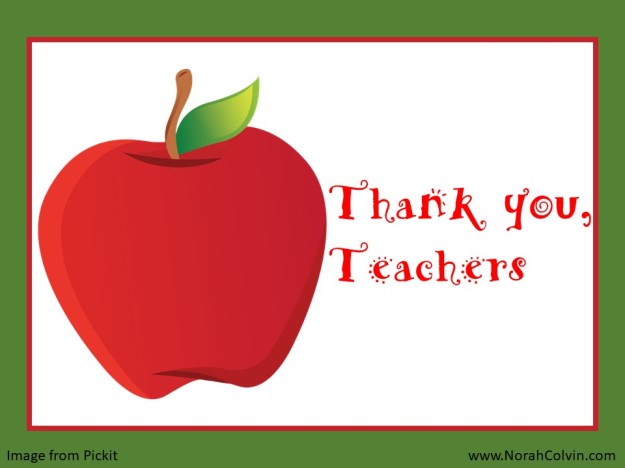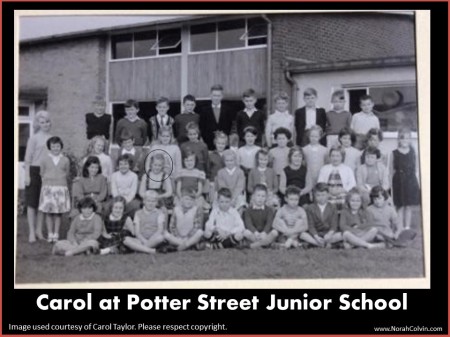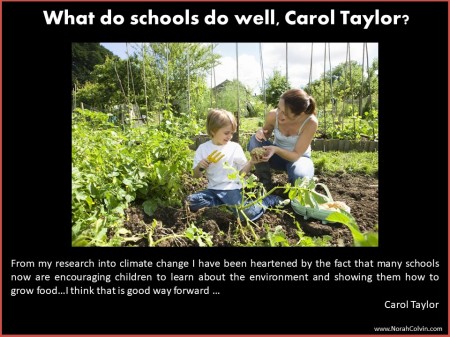Welcome to the School Days, Reminiscences series in which my champion bloggers and authors share reminiscences of their school days. It’s my small way of thanking them for their support and of letting you know about their services and publications.
This week, I am pleased to introduce Pete Springer, teacher, author and blogger. Pete joined in these conversations about school days right from the beginning. Like me, he is a passionate educator and has spent many years in the classroom changing lives.
Although he is no longer in the classroom, his passion for education remains strong. He has established a Facebook page to support teachers and has written a book sharing his experience as a teacher with the intention of supporting other teachers, especially those just starting their journey.
He titled his book They Call Me Mom. What a fabulous title. As a teacher, I was called Mum (or even Dad, sometimes) many times. I always considered it a lovely testimony to our respectful relationship. As a parent, I was also sometimes called Mrs x and was just as honoured. I’m sure that, as you read through Pete’s bio and interview, you will be impressed by his ongoing contribution to education and our world.
But, before we get into Pete’s interview, I’ll allow him to tell you a little of himself:
I taught elementary school (grades 2-6) for thirty-one years in California. I loved everything about being a teacher. I loved my students as if they were my own, and I follow their progress today even though I’ve been retired for three years. I’ve been invited to many extracurricular events (I tried to attend one each for all of my students during the year), birthday, graduations, weddings, and even a housewarming party. One of my funniest memories was being invited (I obviously didn’t go) to a sleepover party thrown by one of my second graders.
I don’t like to make a big deal about it, but I was chosen for the Excellence in Teaching Award in 2006. This award is presented annually to ten of the top teachers in the County each year.
My favorite thing to do in school on a daily basis was to read to kids, and I decided that if I ever got the opportunity that I would try writing books for children when I retired. I got sidetracked by another project first. I decided to write a combination memoir/advice book, They Call Me Mom for future teachers. The title of the book was inspired by the fact that elementary children consistently refer to their teachers as mom (by accident). I took this as the ultimate compliment because moms are pretty great! I have spoken to college students at my alma mater, Humboldt St. who are studying to become teachers. I was most touched when one of my former Superintendents purchased my book for all of the new teachers in his district.
I am now following my dream and attempting to write books for middle grades that deal with the issues that kids deal with at home and at school. I’ve joined a critique group (one of the members is my former principal, Nancy Wheeler, who is one of my biggest role models in education serving as one of my master teachers and then as my principal. (She is 81 and still volunteers in schools, and I couldn’t have a better role model.) My wife, Debbie, was also a career educator, serving as a preschool teacher and then Director.
In addition, as an advocate for literacy, I joined the Humboldt County Author’s Festival Committee which brings twenty-five children’s authors from across the country to our local schools biennially. (I someday would love to be one of the presenters.) I also volunteer for an organization called the Society for the Blind. This organization helps people who are visually impaired. Once a week I read our local newspaper and send in the articles (using voice memos on my cellphone) where they can be accessed by those who are blind or have low vision.
Having been a master teacher for four student teachers, I try to always be an advocate for education, children, and teachers. I started a Facebook group about eighteen months ago called Supporters of Teachers to highlight positive things that are happening in education.

Welcome, Pete.
Let’s talk about school. First, could you tell us where you attended school?
I attended school for thirteen years (K-12) in the United States. I then attended Humboldt St. (California) where I graduated and went on to earn my teaching credential.
Did you attend a government, private or independent school?
All of the school I attended were government (public) schools.
What is the highest level of education you achieved?
The highest level of education I achieved was a Bachelor’s Degree from Humboldt St.
What work or profession did you choose after school and was there anything in school that influenced this choice?
I come from a family of teachers, but I think school also influenced my career path because I was inspired by some of the teachers I had. I never planned on becoming a teacher, but I fell into an education job as a one on one aid to a boy who had muscular dystrophy. I fell in love with working with children from that moment on.
What is your earliest memory of school?
My earliest memory of school was attending preschool. One of the other kids in the class ate a purple crayon and threw it up a few minutes later. The poor teacher had to deal with the mess.
What memories do you have of learning to read?
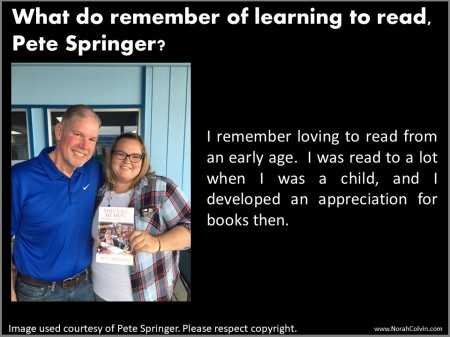
I remember loving to read from an early age. I was read to a lot when I was a child, and I developed an appreciation for books then. I remember reading all of the books in the Hardy Boys series when I was in elementary school. One of my favorite things to do as a dad was to read with my own son who has gone on to earn his Master’s Degree in education. I still read every night before I go to bed. John Grisham is my favorite author.
What memories do you have of learning to write?
I recall writing stories at a young age. When I got to high school I became much more self-conscious about having my work read aloud. When I became a teacher, I often wrote plays that my class and I performed.
What do you remember about math classes?
Math came easy to me. I was always good with numbers and teachers were very impressed with my mental math abilities. Math was such an intuitive concept to me—I loved it until geometry reared its ugly head.
What was your favourite subject?

I liked pretty much all subjects, but I would say math because It made me feel smart.
What did you like best about school?
I liked the elementary and middle school years because I had a lot of friends. High school was my least favorite time. I would say that college was my happiest time because I could be myself, and I liked the opportunity for free thinking.
What did you like least about school?
My least favorite thing about school was my high school years because it was so cliquish. We moved to a new place when I was starting high school, and I didn’t have the self-confidence that I possess today. I tended to withdraw instead of putting myself out there. If I could have one do-over in my life, it would be those years because it was the one time in my life that I wasn’t happy.
How do you think schools have changed since your school days?
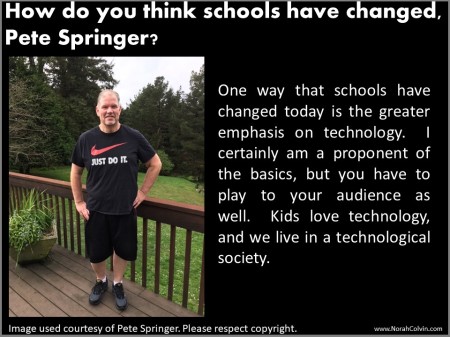
I think I’m very qualified to answer questions about schools. One way that schools have changed today is the greater emphasis on technology. I certainly am a proponent of the basics, but you have to play to your audience as well. Kids love technology, and we live in a technological society. Another change is the great emphasis that schools put on state testing. That is quite unfortunate because it takes the joy out of learning for students and teachers. While there are always going to be great kids in a school, there is a higher percentage of students with anger and mental health issues. It makes the job harder to be a teacher and a student in a hostile environment.
What do you think schools (in general) do well?
I think schools generally give kids a well-rounded education. One of the things schools are getting better at recognizing is that not every student is bound for college. They are providing a path for students who will learn a trade. There are still plenty of educators who recognize how important it is to keep the arts alive in schools, but I worry about cuts in this area.
How do you think schools could be improved?
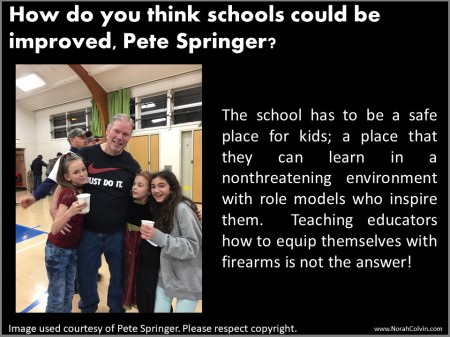
Besides de-emphasizing state testing, schools have an increasingly challenging job of dealing with bullying. Violence is prevalent in our culture, and schools have increasing numbers of violent students who are dealing with mental health issues. The school has to be a safe place for kids; a place that they can learn in a nonthreatening environment with role models who inspire them. Teaching educators how to equip themselves with firearms is not the answer!

Thank you for sharing your reminiscences of school and thoughts about education in general, Pete. It’s been wonderful to have you here. I always love meeting other educators, especially those who are as passionate about children and learning as I am. I don’t think anyone who hasn’t been a teacher can ever understand the passion and dedication we have for our roles as life changers.
Find out more about Pete Springer
on his blog: Pete Springer Author
Connect with him on social media
Facebook: Pete Springer Author
Twitter: Pete Springer

Purchase your own copy of They Call Me Mom
from Amazon
If you missed previous reminiscences, check them out here:
Charli Mills
Sally Cronin
Anne Goodwin
Geoff Le Pard
Hugh Roberts
Debby Gies
Pauline King
JulesPaige
D. Avery
Christy Birmingham
Miriam Hurdle
Robbie Cheadle
Marsha Ingrao
Ritu Bhathal
Joy Lennick
Darlene Foster
Susan Scott
Barbara Vitelli
Sherri Matthews
Mabel Kwong
Chelsea Owens
Carol Taylor
Pamela Wight
Look for future interviews in this series to be posted on Sunday evenings AEST.
Coming soon:
Yvette Prior
Colleen Chesebro
Balroop Singh
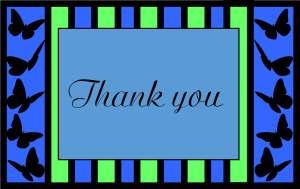
Thank you for reading. I appreciate your comments. Please share your thoughts.


